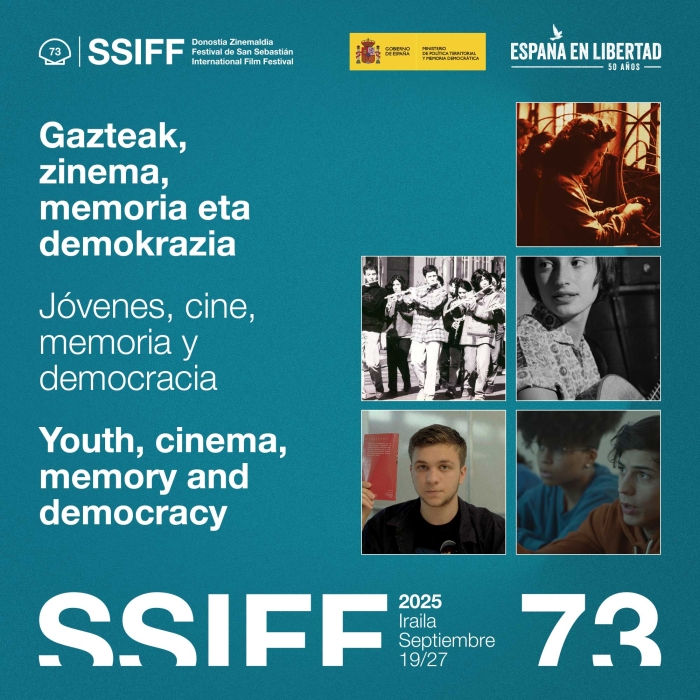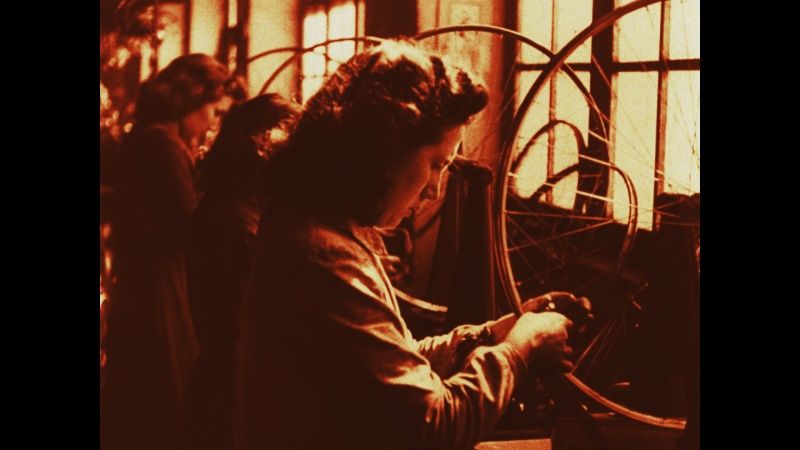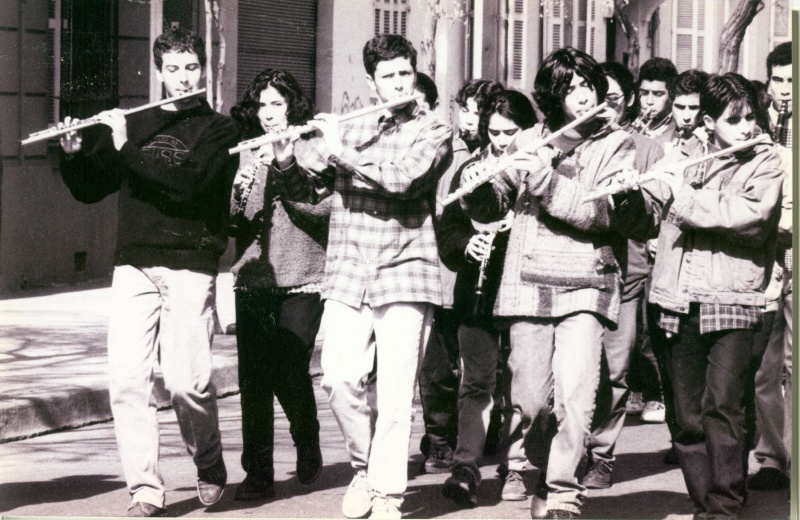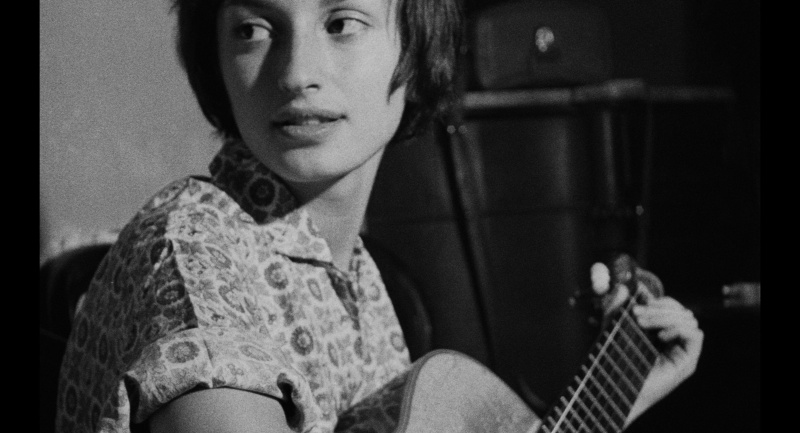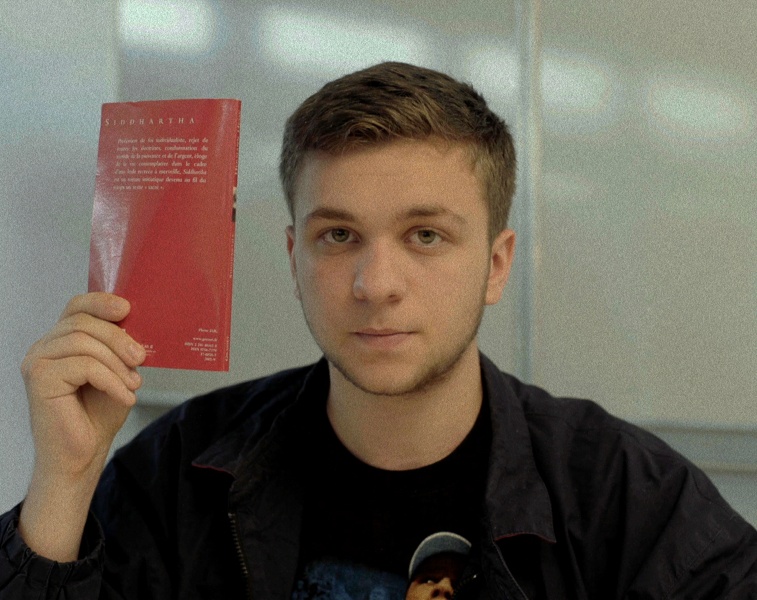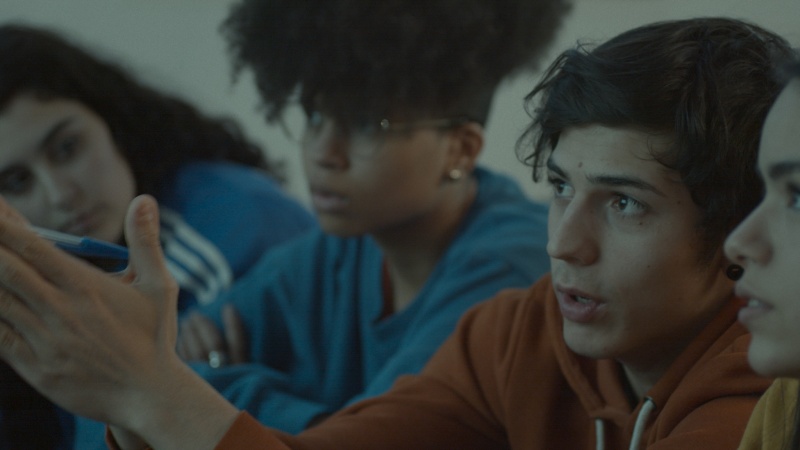A round table will reflect on the ‘Cinematic Writings of the Franco Dictatorship’
The San Sebastián Festival and the Commissioner for the Holding of the 50th Anniversary of Spain in Freedom, an initiative of the Government of Spain dependent on the Ministry of Territorial Policy and Democratic Memory, have created the section Youth, cinema, memory and democracy. The initiative includes a season of films devised to prompt collective thought on the place held by the past in the present and in the future; a round table taking a closer look at the relationship between the cinema and history; and screenings for secondary education students to encourage conversation between generations.
The Victoria Eugenia Theatre will host the tribute to the documentary Canciones para después de una guerra / Songs for After a War, by Basilio Martín Patino (Lumbrales, 1930-Madrid, 2017), in the endeavour to amend the censorship process suffered by this work and also to foster historical knowledge of the dictatorship’s tools of coercion and the importance of freedom of expression in democratic regimes. In 1971, following an private showing of Canciones para después de una guerra, a documentary by Basilio Martín Patino which had received the distinction of Special Interest from the Censorship Board, the San Sebastián Festival fought for a revision of the censorship proceedings; this situation, together with a harsh film review in the national press, led to complete prohibition of the film, which was unable to have its release until 1976, once the dictator Francisco Franco had died. In 2021, as part of the Zinemaldia 70. All possible stories project, a study was made of the relationship of the San Sebastián Festival with censorship under Franco, where Canciones para después de una guerra was one of the paradigmatic case studies.
Also forming part of this season is Chile, la memoria obstinada / Chile, Obstinate Memory (1977), the documentary by Patricio Guzmán (Santiago, 1941) narrating the return of the Chilean filmmaker to his country bearing a copy of his previous film, La batalla de Chile / The Battle of Chile, to meet some of those who played a leading part in the events of 11 September 1973, the date on which Pinochet launched the coup d’état, and to share it with a new generation of Chilean citizens.
Pablo Gil Rituerto (Madrid, 1983) makes his directorial debut with La marsellesa de los borrachos / The Drunkmen’s Marseillaise (2024), a non-fiction in which a filming team travels to towns in northern Spain to recreate the clandestine journey made in 1961 by a group of Italian intellectuals recording popular protest songs at the height of Franco’s dictatorship.
The cycle also recovers Nos défaites / Our defeats (Zabaltegi-Tabakalera, 2019), by the French filmmaker Jean-Gabriel Périot (Bellac, 1974), portraying our relationship with politics in the shape of a game where secondary education students re-enact excerpts from films made post-May ‘68.
Lastly, in El cielo impasible (2021), David Varela (Colmenar del Arroyo, 1972) assembles, in Madrid’s western zone, setting of one of the bloodiest battles of the Civil War, a group of adolescents who discover, recite and discuss the testimonials of the soldiers who fought during those days.
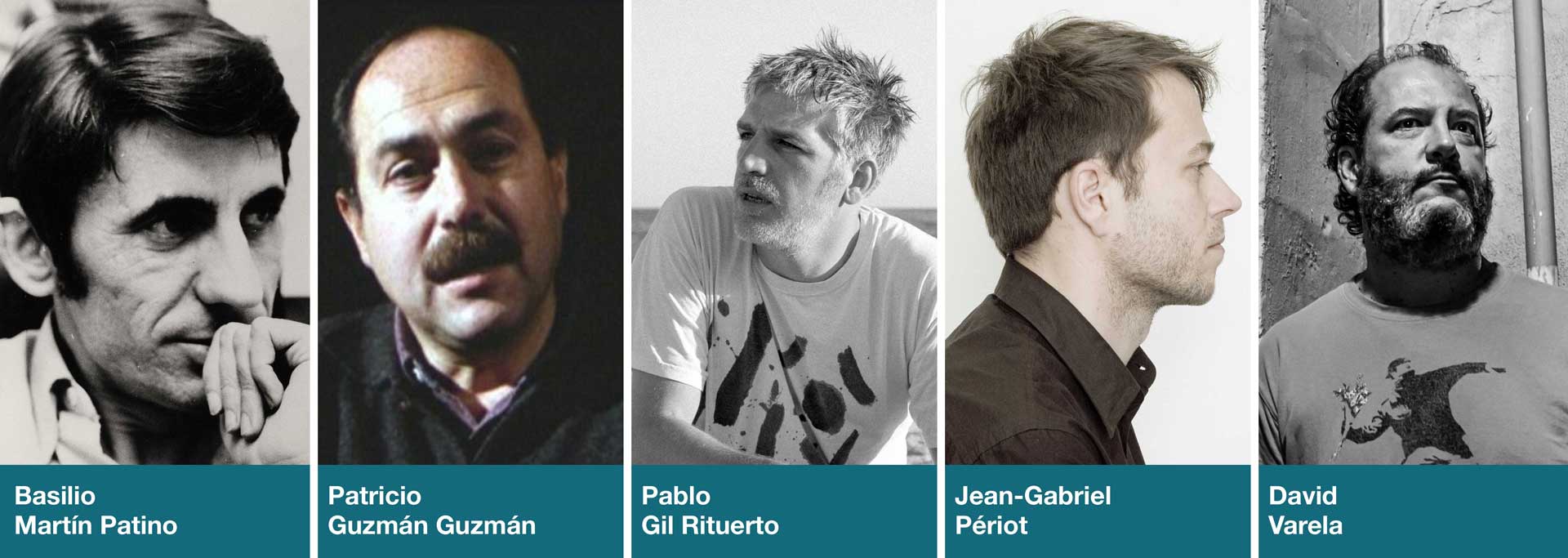
Also taking place in the context of this initiative is the round table Cinematic writings of the Franco Dictatorship, moderated by Carmina Gustrán, Commissioner for the Holding of the 50th Anniversary of Spain in Freedom. Participants in this event will be Valeria Camporesi, the director of the Filmoteca Española, who has an extensive academic background as a film historian; Santiago de Pablo, Professor of Contemporary History at the University of the Basque Country (EHU) and specialist in the relationship between the cinema and history; and the professor and historian Nicolás Sesma, author of Ni una, ni grande, ni libre, an account of the Franco dictatorship containing a myriad of references to the cinema.
Conversation between generations
Added to the above, as part of the season Youth, cinema, memory and democracy the film Les héritiers (Once in a Lifetime) will screen for secondary education students from October to December in the Tabakalera cinema with the aim of fostering conversation between generations.
The history of Spanish cinema during the Franco era is shot through by a current, generally underground, largely silenced or censored, of films to have shown their discrepancy or even their rejection of the dictatorship under Francisco Franco. All of them, to avoid prohibition under pro-Franco authorities, rolled out a series of strategies to disguise their anti-Franco stance. For example, whilst Luis García Berlanga preferred satire, Carlos Saura embraced the metaphor.
A film about the Chile hidden behind the curtain of its heart-rending memory. Twenty-two years after Pinochet's coup d'état, Patricio Guzmán returned to his country to understand how and to what extent the oblivion imposed by Pinochet had been capable of destroying the memory and energy of a people.
During the summer, a film crew travels the roads and towns of northern Spain. They follow the steps of the clandestine journey undertaken by the group Cantacronache, who in the summer of 1961, at the peak of Franco's dictatorship, collected popular protest songs. Seen through the lens of oral memory and of the sound files recorded in 1961, the two journeys talk to one another, lending shape to an emotional and political geography of a territory in which the wounds of the past remain open.
Nos défaites / Our Defeats draws a picture of our relationship with politics through a game involving the restaging by secondary school students who reflect on concepts such as unions, capitalism and social uprisings whilst acting in and directing extracts of films made post-May ’68. How much importance does the revolution or engagement hold in their everyday lives? How do they perceive the world they’re growing up in? And, above all, would they change it, destroy it or build a new one?
Madrid's western zone. Setting of one of the bloodiest and deadliest battles of the Spanish Civil War. A group of adolescents investigates, recites and discusses the testimonials of the soldiers who fought during those terrible days; they make the experiences of the veterans and the dead their own. Meanwhile, the film mutates, adapts and takes shape as it is constructed through their eyes: that of a new generation open to dialogue and who take a critical stance towards the school and the historical memory.

